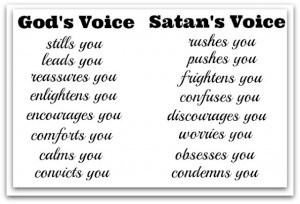Blog
Words for Women: Criticism

Constructive criticism. Mentorship. Well-meaning help. We’ve all faced some sort of criticism in our lives, regardless of the name it wears. Many times, we’ve asked for it. Sometimes, as in the case of writers, we accept it as part of the job. But how do you distinguish the good type of criticism–the kind meant to help us grow and change for the better–from the bad type, meant to tear us down?
I’ll share a story about something that happened to me recently. I work from home, and I schedule my writing around my children’s day. Sometimes, like this week, it means I get long stretches of time to write. Other times, it means that I’m stealing a half-hour here and there during the day and staying up late into the night after they’ve gone to bed. I have responsibilities to my publishers, but I have a greater responsibility to my family, and that’s something of which I’m very aware. But it doesn’t mean that I don’t struggle with making it work. There are days when it’s difficult and frustrating, and days where I feel like I’m not doing either thing particularly well.
So when someone I respected made an offhand comment telling me I needed to put my family first, after I’d just done a week of twenty-hour days, it hurt. It made me question everything I was doing. Was God trying to give me a wake-up call? Was I really being selfish and making my kids suffer? I went to bed wondering if I should finish out my contracts and not write anymore after that.
Some prayer and a discussion with my husband later, I realized that this was simply one person’s well-meaning opinion, and it had value. But it wasn’t a sign from God. I was reminded of this list going around the web:
I don’t believe that when God wants us to make a change, he does it through shame and condemnation. In my life, the leading of the Holy Spirit is far more gentle. It may convict and it may challenge, but it doesn’t crush. In this case, it wasn’t the advice that was bad, it was that I allowed it to steer me off course. I believe that God has given me the opportunity right now to write and to speak to people’s hearts in a way that I couldn’t do otherwise. If I prize other people’s opinions over what I feel I’m being called to do, I’m allowing that well-meaning advice to become destructive.
So I encourage you when facing criticism, especially that which diverts you from the course you feel God is leading you, to test it through prayer and reflection. Is it truly a message from God? Or is it simply well-meaning advice that arrives with bad timing?
How do you distinguish between God’s leading and man’s wisdom? How do you put aside criticism?
Tags: advice, criticism, God's leading, Holy Spirit, working from home, working mom, writing life
Marketing Monday: Home, Home on the Web (Author Sites, Part 1)

Do you have a home on the web?
No, I don’t mean Facebook or Twitter, though trust me, sometimes it feels like I spend more time on social media sites than anywhere else on the web. I’m talking about your own registered, branded website.
I had the privilege of hearing leadership expert Michael Hyatt speak at the American Christian Fiction Writers conference last year, and he brought up a concept that a lot of marketers and publicists have been talking about lately: maintaining a branded author site as your home base.
Why bother? you ask. Doesn’t most marketing happen on social media these days? Yes and no. Conversations happen on Facebook and Twitter and other social networks, but like striking up a conversation with someone at the grocery store, they tend to be brief and governed by time and chance. If you want to build a relationship with someone, you’ll probably invite them over to your house for coffee. They in turn will get a feel for who you are by your home, what you serve them, how you welcome them in.
Interacting with readers on the web is no different. Facebook and Twitter might be where you meet, but your site will be where you connect. Furthermore, you have complete control over your content and how it’s presented. Anyone who has spent any time on Facebook knows that things can change from week to week, from layouts to how your posts are shared. Accounts can be suspended. Media types can be limited. Social networks (like My Space, for example) can fall out of fashion in favor of something new.
Your home on the web should accomplish three things:
1) Give the reader a feel for who you are, not just as an author, but a person. This means blending personal information along with “hard content.”
2) Allow the reader to take something away besides a sales pitch. There’s nothing worse than navigating to an author site hoping to find out more about their book’s inspiration or some behind-the-scenes info and coming away with only a hard sell to buy their products.
3) Act as a jumping off point for all your marketing. From your website, readers should be able to find you on social media networks (Facebook, Twitter, Google+, Pinterest, Goodreads, YouTube), find buying links to your books, and read your blog. As a corollary, your marketing efforts should always draw readers back to your site rather than an external “satellite” location like Facebook.
Over the next five Mondays, I will be talking about building your home base in both general and specific terms, from site design and blogging platforms to the all-consuming author question: “To Blog or Not to Blog.” I’ll also be sharing some of my favorite resources from the industry’s best blogging and marketing experts.
Today’s question: Do you have a home on the web? Feel free to list your URL below and tell us a little about what readers can find there. (Please no sites with objectionable or adult content.)
Tags: author site, blog, blogging, branding, marketing, websites
Meet the Hero of Five Days in Skye
The problem with writing a celebrity hero is that whenever you tell them to keep a low profile, they go and talk to the media. But what’s done is done… so I’m leaking James MacDonald’s interview with Beau Monde here before it hits the newsstand.
James_Interview_FinalTags: character interview, Five Days in Skye, hero, magazine article, romance
Second Chance Winners!

Today’s winner of a eBook copy of Five Days in Skye is:
Marilyn S.
Congratulations, Marilyn! I’ll be contacting you via email about delivery of your prize.
Previous Winners:
GRAND PRIZE (gift basket): Tracey L.
PAPERBACK: Guyanne L.
EBOOK: Marilyn S.
Tags: contest, Five Days in Skye, winners

